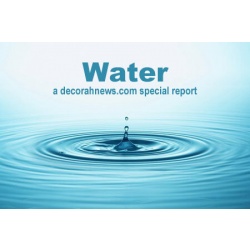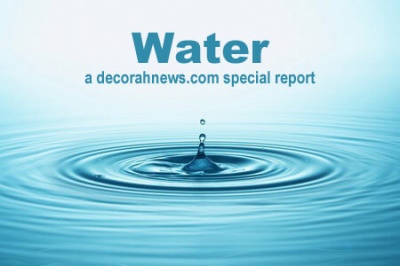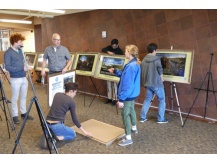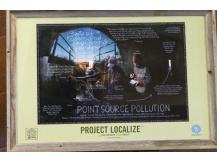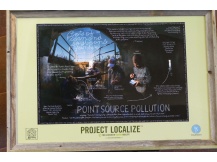
"Water," a decorahnews.com special series: Luther College graduate leads an Ames HS class that tries to explain water quality issues
With phrases like "non-point pollution" and "nutrient reduction wetland," water quality is sometimes a difficult topic to understand.
1997 Luther College graduate Joe Brekke is leading a unique educational program at Ames High School this year--"The Bluestem Institute"--that is trying to explain water quality issues in ways everyone can understand. The 52 high school students in Brekke's program have been talking with farmers, legislators, conservation experts and a host of other people involved with water issues in Iowa.
The program has been a combination of field research, hands-on projects and formal classroom studies centered around the science and policies behind Iowa's water quality issues.
Student Alexia Clinton says the class has learned "There's no perfect solution," but fellow student Derek Lin says the class has worked on presenting the language of farmers, scientists, chemists and others to the public. "We don't know who's right," says student Mattie Kupfer, but she adds it has been "refreshing and challenging" to have to dig deep into a complicated issue.
The students eventually contacted Douglas Gayeton, who had produced a PBS series about local food and had written the book "Local: The New Face of Food and Farming." Gayeton had come up with the idea of explaining complicated issues like our food system by using graphics written over eye-catching photos--"Using both sides of the brain," Gayeton explains to decorahnews.com.
The Ames students, however, were not satisfied with the photos Gayeton sent to them, saying, "We need Iowa photos." That led Gayeton into a partnership with the high school students in putting together the photos with graphics about Iowa's water quality.
Gayeton approves of the result. He says the difficulty with discussing water is that so often it is hidden from us. The display of photos with graphic information about Iowa's water quality is an attempt "to make the invisible visible," he says. We can begin to focus on solutions "if we know how to talk about (water quality)."
To view the complete collection of the Bluestem Institute's water quality project's informational photos, visit http://www.ahsbluestem.org/the-water-project
Site designed and maintained by Iroc Web Design Services©.
Your Small Business Web Design Solutions.™
